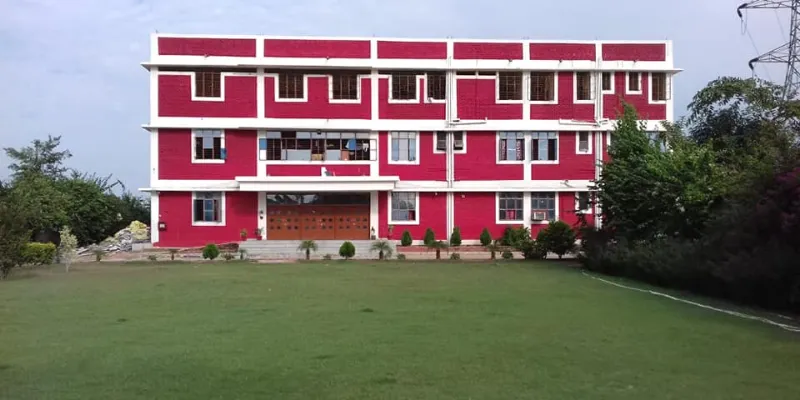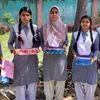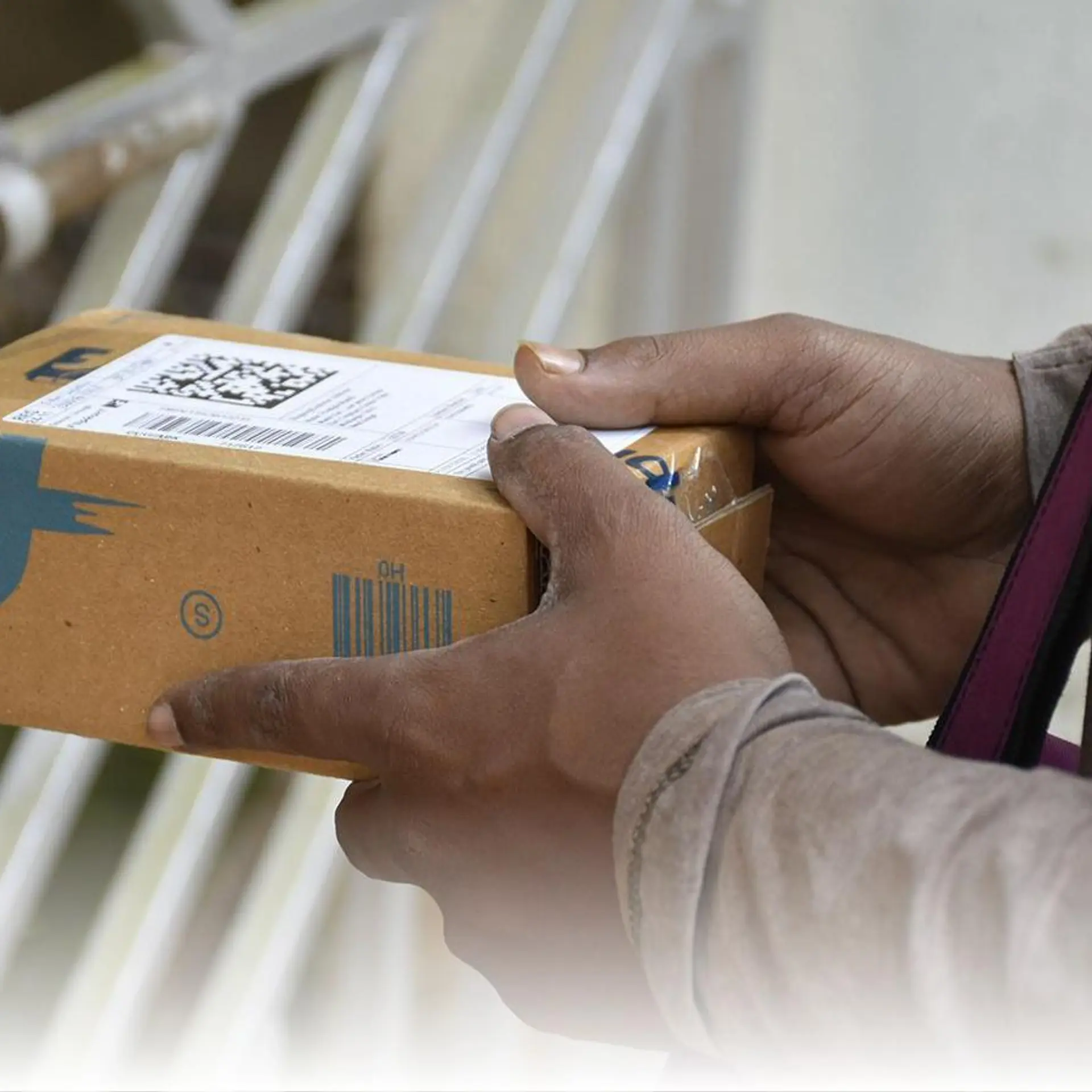This Padma Shri winner is providing free education to an underprivileged community in Bihar
Seventy-four-year-old Jyoti Kumar Sinha, a Padma Shri awardee and an ex-RAW officer, is providing free, quality education to the Musahar children in Bihar by establishing a CBSE-affiliated residential school.
British writer and lay theologian CS Lewis once said, “You are never too old to set another goal or to dream a new dream.”
With this thought in mind, 74-year-old Jyoti Kumar Sinha went about putting his shoulder to the wheel to uplift one of the underpriviledged and marginalised sections of the society. Hailing from the eastern state of Bihar, the Musahars are a tribal-turned-Dalit community, traditionally associated with the occupation of catching rats. Even after repeated claims by the administration of development and change, their condition has remained the same.

74-year-old JK Sinha with the Musahar children.
According to the 2011 Census, an estimated 27 lakh Musahars reside in India. However, only three percent of them are educated. JK Sinha wanted to transform this.
In 2005, he laid the foundation for Shoshit Seva Sangh (SSS), a non-profit organisation, with an aim to provide quality education for free to the Musahar children.
Today, he is successfully running a CBSE-affiliated residential school for more than 500 boys and girls on Shivalaya Road in Patna. This, in turn, is infusing a big sense of confidence among the students and is equipping them with all the tools needed for a better livelihood.

The front elevation of the school, Shoshit Samadhan Kendra.
Sinha — who had a very illustrious career — well-understood the importance of education, and the pivotal role it tends to play in the upliftment of individuals. This explains his decision to make learning accessible to the ostracised populace.
“Predominantly agricultural labourers, most of the people from the Musahar community were landless and lived under thatched roofs in the outskirts of cities. They were not only shunned by the mainstream society but also, victims of exploitation and violence. And, when I encountered this, I felt a sense of personal guilt. Hence, as soon as I retired from service, I began working towards their welfare,” Jyoti Kumar Sinha tells SocialStory.
How it all started
Born and brought up in one of the oldest inhabited places in the world, JK Sinha completed his schooling from St. Xavier’s School in Patna, and then went on to pursue a degree in History (Honours) from St. Stephen’s College, Delhi, followed by a Master’s in the same subject at the Delhi University.
Immediately after, in 1967, he joined the Indian Police Service as the Director-General of Central Reserve Police Force, following the footsteps of his father and grandfather.

Some of the kids from the Musahar community in Bihar.
Sinha’s first contact with the community took place two years later when he went to capture a gang of criminals in one of the ghettos where the Musahars lived. He was shocked to see the poverty and plight of the people living there, so much so that the experience stayed with him.
“From there on, I got appointed to the Cabinet Secretariat, Government of India, and also occupied the position of the special secretary of Research and Analysis Wing (RAW). After serving the government for 34 long years, I retired in 2005. Nonetheless, even after all those years, I realised that the anguish of the Musahars had not ended,” recalls Sinha.
The United Nations recently laid down, “Ensuring quality education for all is not only central to the achievement of all of the global goals but in particular the goal to end extreme poverty.”

Students studying in one of the classrooms of the school.
Going by this, Sinha took to the path of making education accessible to the Musahar children. He wanted to give them an opportunity to use the powerful tool of knowledge to make progress, become independent, and ultimately, enhance their livelihoods.
As soon as he retired from service, Sinha returned to his hometown to set up Shoshit Seva Sangh, a non-governmental organisation in Patna. The 74-year-old, with the help of his family and friends, pooled in some funds to start a fully-free English medium residential school called Shoshit Samadhan Kendra for the community’s children.

The school offers boarding facilities for the children free of cost.
“Though a lot of people around me did not believe in the idea at first, many well-wishers, corporates, and NGOs later, came forward to donate money for the construction of the school. The entire establishment along with all the facilities such as lodging, computer labs, healthcare provisions, smart classrooms, auditorium, volleyball, hockey, and basketball courts, cost around Rs 40 crore,” explains Sinha.
Rooting out poverty through education
Sinha was inclined to offer the best opportunities and facilities to the Musahar children to equip them to face the real world. Since most of the individuals from the community had never been to schools all their lives, Sinha met with plenty of resistance from the parents initially.

Some Musahar students graduating after completing grade XII.
“When I approached them for the first time to send their children to school, they were not very welcoming. Some of them even thought that I was trying to take their kids away so I could remove their kidneys and sell them in the market. So, convincing them and winning their trust was a huge ordeal and took a considerable amount of time,” he says.
Sinha started Shoshit Samadhan Kendra with four students. At present, over 500 kids are obtaining their education from the institute. The school has been holding classes from Montessori to Class XII, teaching all the subjects ranging from humanities to sciences with the assistance of 40-plus staff members.

The hockey field at the school.
Hundreds of children who are studying at the school are already experiencing the fruits of education. They are all in the process of becoming catalysts of change within their own families and communities.
“The biggest sign of impact I have seen is that the children who are pursuing their education here are going back to their respective homes, and talking to their parents about various aspects like health and hygiene, pollution, child marriage, as well as social change. I believe this will go a long way to mould the mindset of the community, and lead them towards economic empowerment,” notes Sinha, who is now planning to begin a degree college called Ekalavya Academy for the Musahars.

JK Sinha receiving the Padma Shri award from the President, Ram Nath Kovind.
Sinha, who continues to oversee the school’s academic and administrative functioning, was conferred with the prestigious Padma Shri award (the fourth highest civilian honour) for his tireless efforts and noble service in the field of affordable education in 2019.
Edited by Suman Singh








